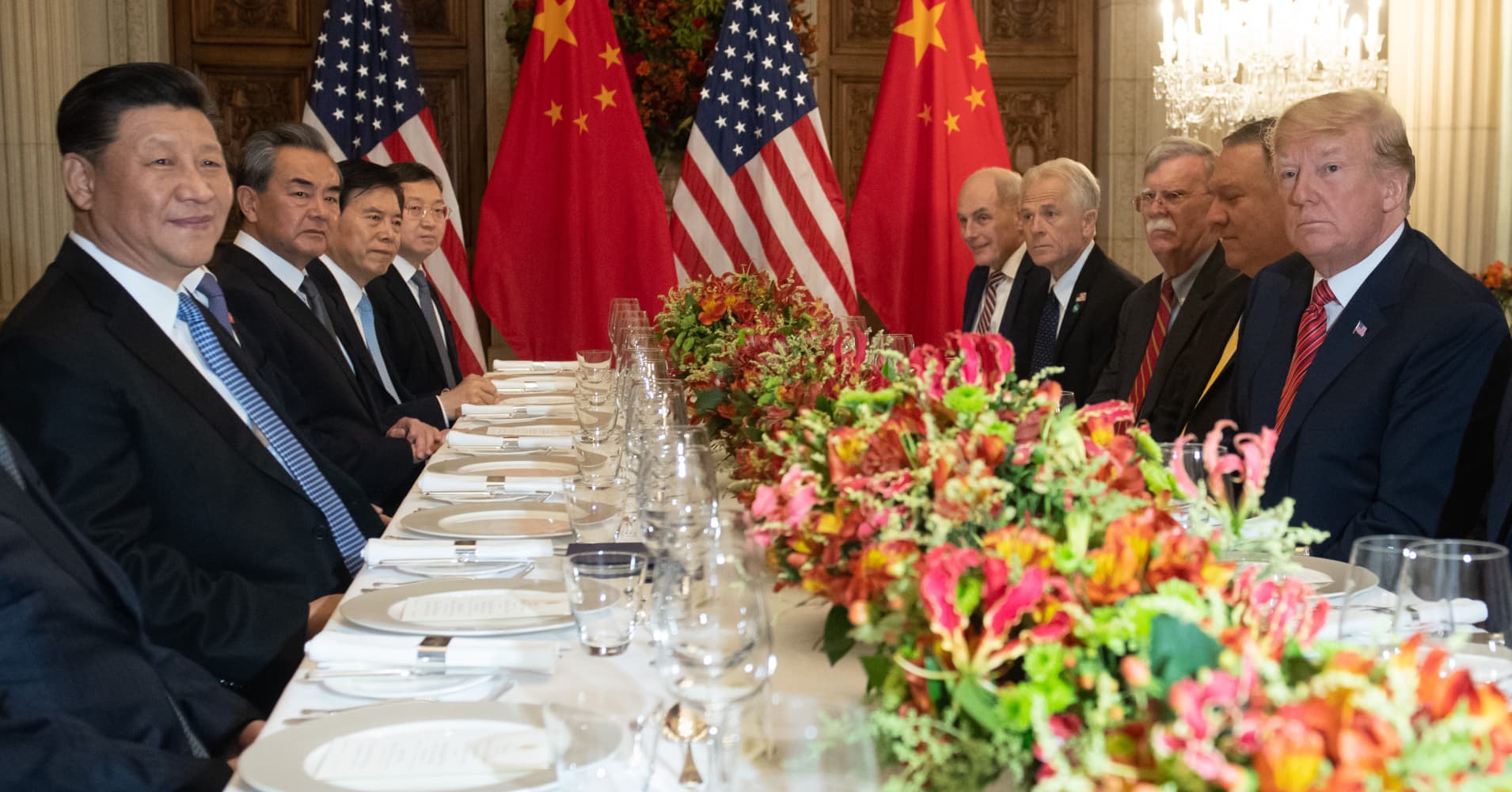
U.S. President Donald Trump's negotiators are set to meet Chinese trade officials this week in an attempt to hash out a trade deal.
The president on Wednesday announced that Chinese Vice Premier Liu He will be leading a team of officials to Washington. Trump implied that Beijing's delegation will be aiming to ink an agreement because it's suffering under the weight of U.S. levies, tweeting that the White House is "very happy with over $100 Billion a year in Tariffs filling U.S. coffers," which is "great for U.S., not good for China."
Donald J. Trump tweet: "....Guess what, that's not going to happen! China has just informed us that they (Vice-Premier) are now coming to the U.S. to make a deal. We'll see, but I am very happy with over $100 Billion a year in Tariffs filling U.S. coffers...great for U.S., not good for China!"
However, according to former Australian Prime Minister Kevin Rudd, any assumption in Washington that Beijing is "economically desperate" for a deal is not "well placed."
"The Chinese have applied a whole bunch of stimulus measures, growth has been restored, including some tax advantages for the private sector. China is approaching these negotiations as of May 2019 in a considerably stronger economic position" than it had six months ago, said Rudd, who is now the president of the New York-based Asia Society Policy Institute.
Rudd told CNBC's "Squawk Box Asia" that Chinese media is emphasizing "time and time again" that the Asian giant's economy is "resilient."
"There's some preparation in social media for the possibility of the Chinese economy continuing even in the absence of a trade deal. So what I sense here is a movement of low-level defiance," Rudd said.
The ongoing U.S.-China trade talks appeared to turn sour when Trump on Sundaythreatened to hike U.S. sanctions on some Chinese goods to 25% from 10% if an agreement is not reached by Friday. Another round of fresh levies would "shortly" follow, he added.
At a Florida rally on Wednesday, Trump said his recent threat to increase tariffs comes because Beijing "broke the deal" in trade talks with Washington.
Rudd, for his part, said the "drama of the last several days" seems to be along the lines of an "American frustration" that Beijing's negotiating text "does not include a reference to China incorporating the proposed changes in the bilateral agreement into Chinese law."
According to Rudd, two details should not be overlooked when predicting whether Liu's upcoming visit to Washington will result in a deal: The size of the accompanying Chinese delegation, and Liu's designation during this visit.
"Liu He goes to Washington with a considerably smaller delegation than was originally planned, that's what I'm advised here," Rudd said.
"Secondly, on top of that, if you look carefully in the fine print, (Liu's) designations for this visit no longer includes the particular designation that he's the special representative for (Chinese President) Xi Jinping," he added.
That is important because Beijing is seeking to demonstrate to Washington "they're not so desperate for a deal that they'll just roll over on anything," Rudd explained.
Beijing is unlikely to fold to Washington during the upcoming negotiations as China's domestic politics will "not permit them to simply be inert in response," Rudd said.
"People often forget that, in one-party states like China, where you've got the Communist Party, there's big internal politics at play here as well and President Xi Jinping can't be seen to be weak," he told CNBC.
"The bottom line is there will be an expectation in the Chinese broader political establishment for the Chinese to take retaliatory actions," Rudd said. "As I understand it, preparatory work is being done on that."
However, Rudd said he is still optimistic that a deal will be struck between the world's two largest economies.
"My instincts tells me that, while President Trump's play here — which is to play the hard cop going into the final round of negotiations — may blow up, the fundamental economic interest of both sides in the weeks and months ahead is still to land this deal," Rudd said.
"I'm still optimistic that sense will prevail — but fasten your seat belts for a slightly rough time in the days and weeks ahead," he added.
via IFTTT
No comments:
Post a Comment